Wolfram Function Repository
Instant-use add-on functions for the Wolfram Language
Function Repository Resource:
Retrieve example data as a dataset
ResourceFunction["ExampleDataset"][arg] returns the ExampleData collection specified by arg as a Dataset. |
Get an example dataset:
| In[1]:= | |
| Out[1]= | 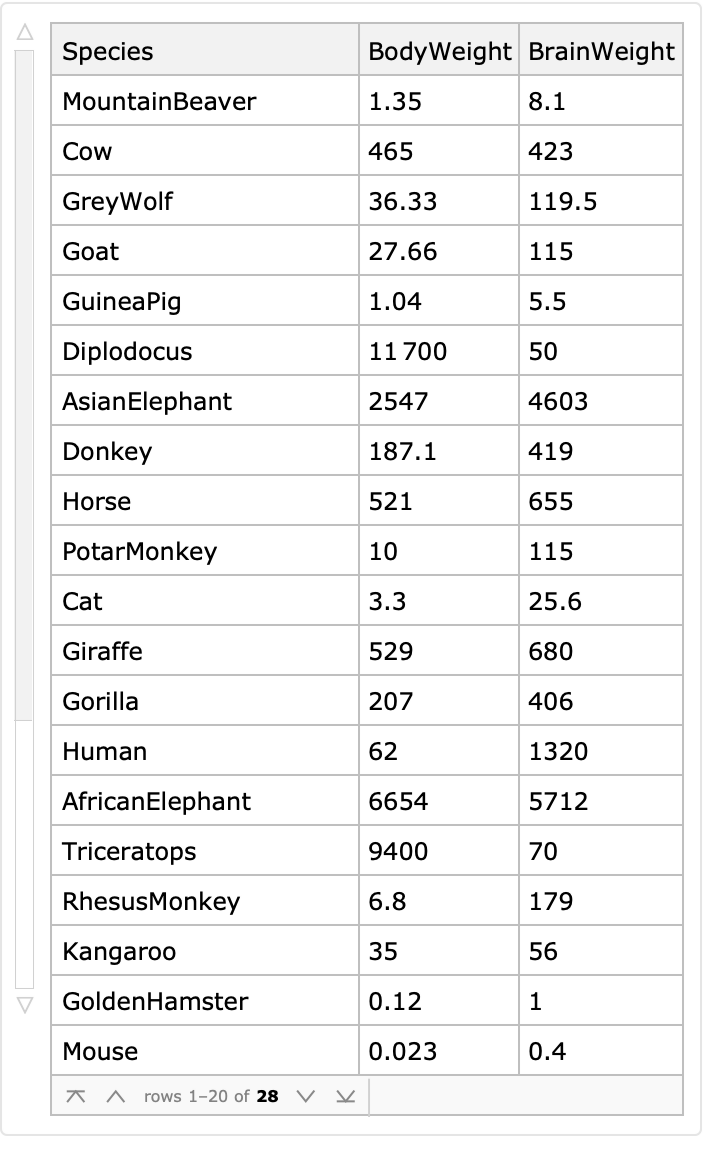 |
Get another dataset:
| In[2]:= | |
| Out[2]= | 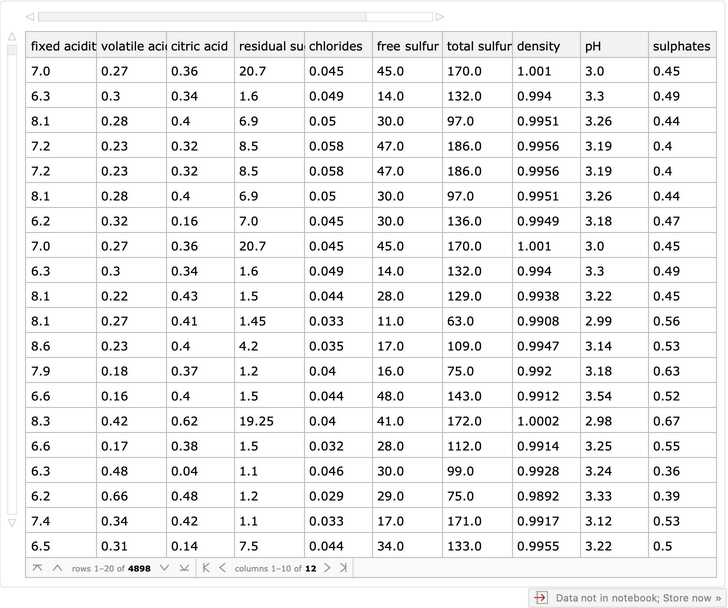 |
Find homes in Boston with an age greater than 98 years:
| In[3]:= | |
| Out[3]= | 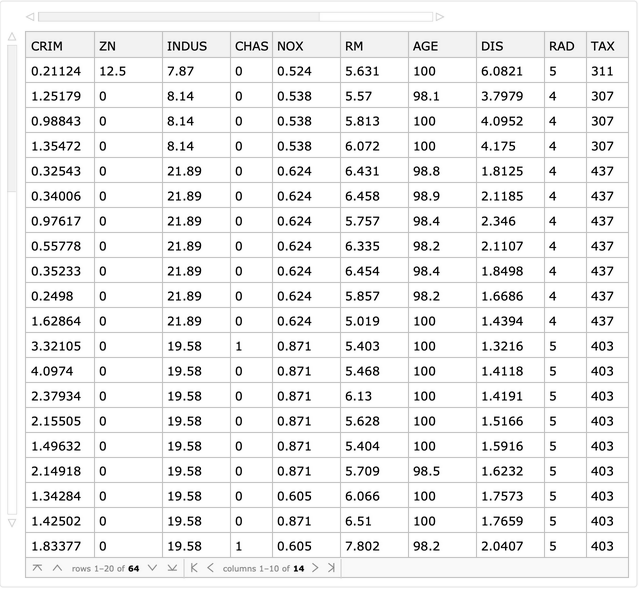 |
Cross tabulate odor and edibility for mushrooms (we can see that odor is a good indicator of edibility):
| In[4]:= | ![ResourceFunction["CrossTabulate"][ ResourceFunction["ExampleDataset"][{"MachineLearning", "Mushroom"}][ All, {#odor, Last[#]} &]]](https://www.wolframcloud.com/obj/resourcesystem/images/ec3/ec30eed0-9151-4ef3-b7e0-404125cf06a4/2053b4a879b4351c.png) |
| Out[4]= | 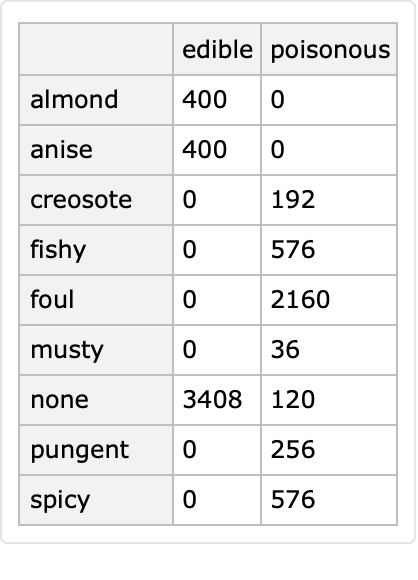 |
If an unknown dataset name is specified, then the result is a Failure:
| In[5]:= | |
| Out[5]= | |
The expected data types for the "Statistics" datasets in ExampleData are "MultivariateSample", "TimeSeries" and "EventSeries". ExampleData has the following data types:
| In[6]:= | |
| Out[6]= | |
A Failure is returned for other data types:
| In[7]:= | |
| Out[7]= | |
Here is a summary of the successes and failures of for different data types in the "Statistics" example data collection:
| In[8]:= | ![Quiet[ResourceFunction["RecordsSummary"]@ Map[ExampleData[#, "DataType"] -> Head[ResourceFunction["ExampleDataset"][#]] &, ExampleData["Statistics"]]]](https://www.wolframcloud.com/obj/resourcesystem/images/ec3/ec30eed0-9151-4ef3-b7e0-404125cf06a4/436d0f1c4e88db62.png) |
| Out[8]= | 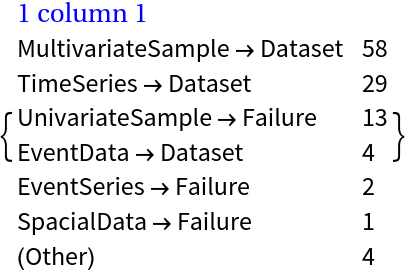 |
Some "MachineLearnining" example data have data shapes and variable names that do not match. In those cases, ExampleDataset returns Failure:
| In[9]:= | |
| Out[9]= | |
Compare the length of the variable names:
| In[10]:= | ![Length[Flatten@ Apply[List, ExampleData[{"MachineLearning", "BostonHomes"}, "VariableDescriptions"]]]](https://www.wolframcloud.com/obj/resourcesystem/images/ec3/ec30eed0-9151-4ef3-b7e0-404125cf06a4/65d8e8de9932a447.png) |
| Out[10]= | |
With the dimensions of the data:
| In[11]:= | |
| Out[11]= | |
Here is an association that shows the successes and failures over the "MachineLearning" datasets:
| In[12]:= | |
| Out[12]= |  |
Summaries for all "Statistics" datasets in ExampleData that have six columns:
| In[13]:= | ![Block[{resAll}, resAll = Quiet[Association@ Map[# -> ResourceFunction["ExampleDataset"][#] &, ExampleData["Statistics"]]]; ResourceFunction["RecordsSummary"] /@ Select[resAll, Head[#] === Dataset && Dimensions[#][[2]] == 6 &] ]](https://www.wolframcloud.com/obj/resourcesystem/images/ec3/ec30eed0-9151-4ef3-b7e0-404125cf06a4/356eaec4fae05f82.png) |
| Out[13]= | 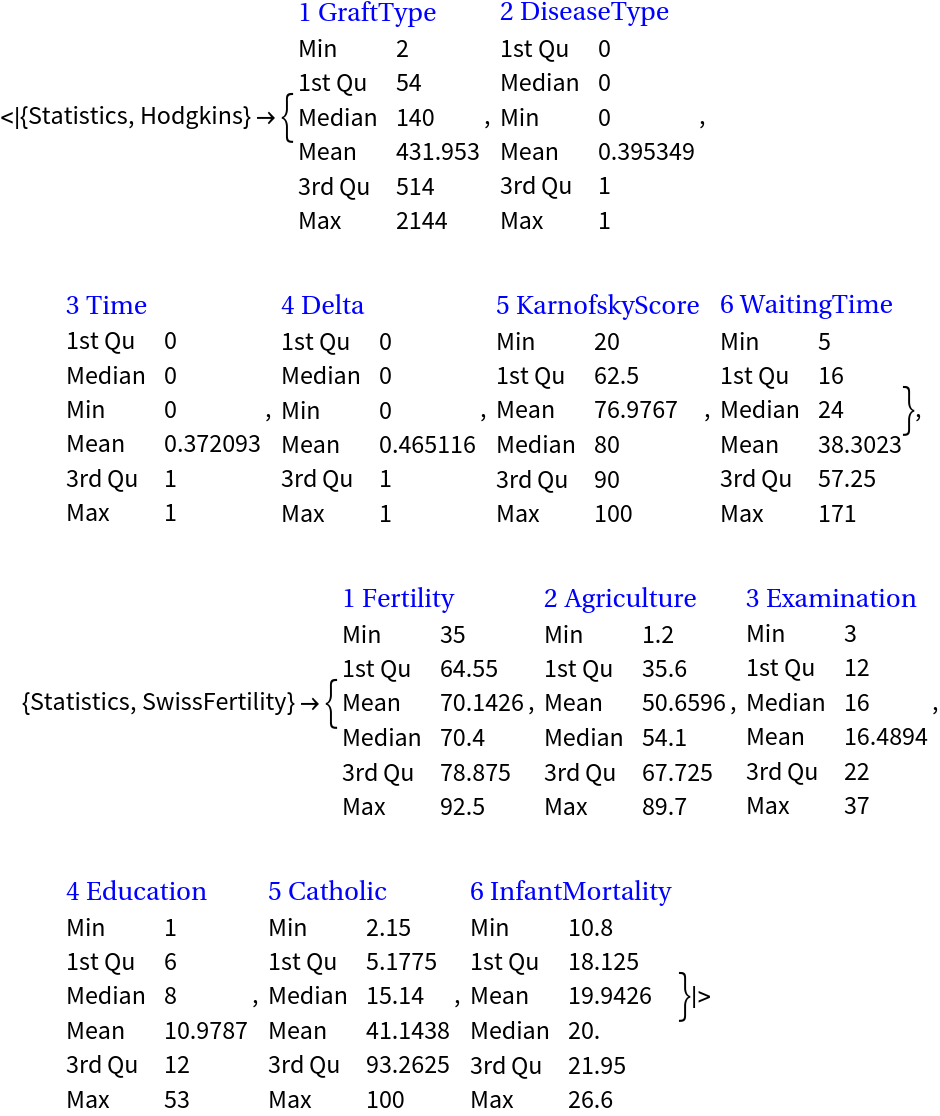 |
This work is licensed under a Creative Commons Attribution 4.0 International License